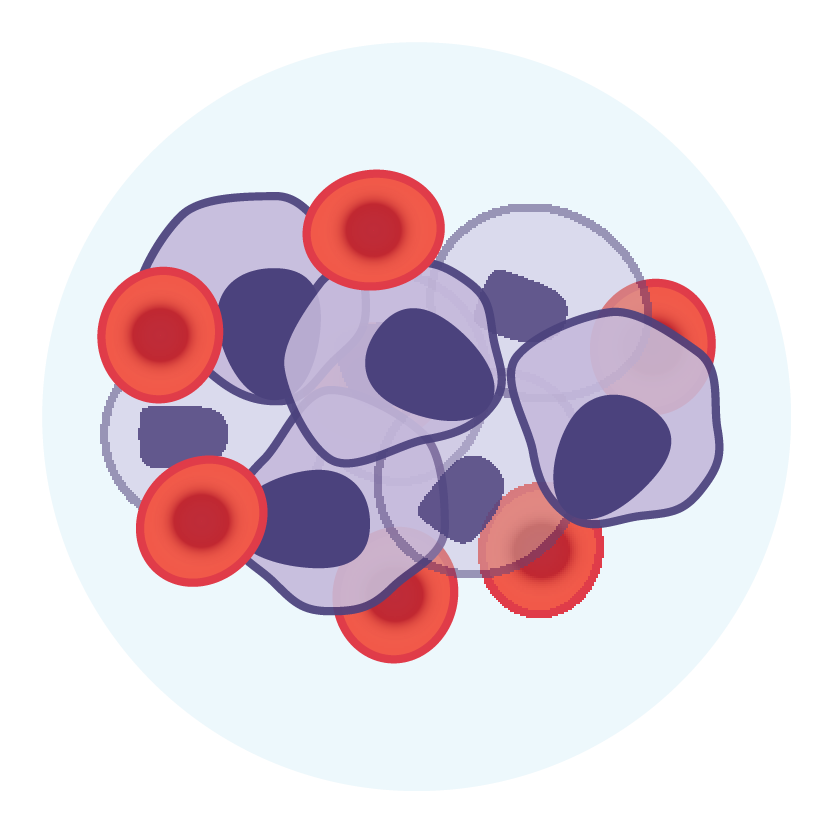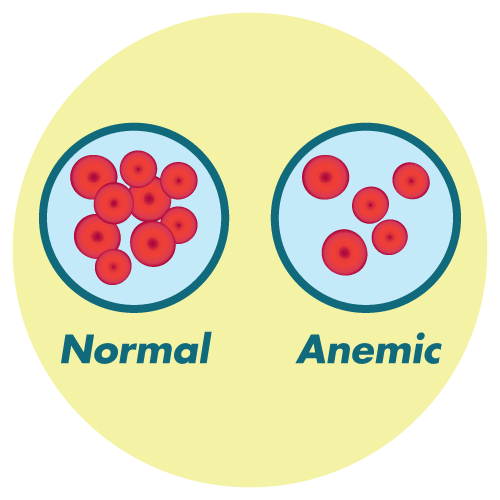| Name | Rituximab |
| Classes |
Anticancer/Antineoplastic Agent Immunotherapeutic Agent Antirheumatic Monoclonal Antibodies |
| Diseases |
Cancer Inflammatory Disease Leukemia Non-Hodgkin's Lymphoma Rheumatoid Arthritis |
Rituximab
Rituximab is a monoclonal antibody used to treat different neoplastic diseases. Rituximab binds specifically to the antigen CD20 located on pre-B and mature B lymphocytes. Rituximab's Fab domain binds to CD20 antigen on B lymphocytes, while the Fc domain recruits immune effector functions to mediate B-cell lysis in vitro. Complement-dependent cytotoxicity (CDC) and antibody-dependent cell mediated cytotoxicity are two possible mechanisms of cell lysis (ADCC). In the DHL-4 human B-cell lymphoma line, the antibody was shown to induce apoptosis.
Rituximab is a CD20-directed cytolytic antibody indicated for the treatment of patients with-
- Non-Hodgkin’s Lymphoma (NHL)
- Chronic Lymphocytic Leukemia (CLL)
- Rheumatoid Arthritis (RA) in combination with methotrexate in adult patients with moderately-to severely-active RA who have inadequate response to one or more TNF antagonist therapies
- Granulomatosis with Polyangiitis (GPA) (Wegener’s Granulomatosis) and Microscopic Polyangiitis (MPA) in adult patients in combination with glucocorticoids
- Administer Only as an Intravenous Infusion. Do not administer as an intravenous push or bolus.
- The dose for Non Hodgkin Lymphoma is 375 mg/m2
- The dose for chronic lymphocytic leukemia is 375 mg/m2 in the first cycle and 500 mg/m2 in cycles 2-6, in combination with FC, administered every 28 days
- The dose as a component of Ibritumomab tiuxetan Therapeutic Regimen is 250 mg/m2
- The dose for Rheumatoid arthritis in combination with methotrexate is two-1000 mg intravenous infusions separated by 2 weeks (one course) every 24 weeks or based on clinical evaluation, but not sooner than every 16 weeks. Methylprednisolone 100 mg intravenous or equivalent glucocorticoid is recommended 30 minutes prior to each infusion.
- The dose for Granulomatosis with polyangiitis (GPA) and microscopic polyangiitis (MPA) in combination with glucocorticoids is 375 mg/m2 once weekly for 4 weeks.
Lymphoid Malignancies: Common adverse reactions in clinical trials of NHL were- infusion reactions, fever, lymphopenia, chills, infection and asthenia.
Rheumatoid Arthritis (RA): Common adverse reactions in clinical trials were upper respiratory tract infection, nasopharyngitis, urinary tract infection, and bronchitis. Other important adverse reactions include infusion reactions, serious infections, and cardiovascular events.
Granulomatosis with Polyangiitis and Microscopic Polyangiitis: Common adverse reactions in the clinical study were infections, nausea, diarrhea, headache, muscle spasms, anemia, peripheral edema.
- Infusion Reactions: Rituximab administration can result in serious, including fatal infusion reactions. Deaths within 24 hours of Rituximab infusion have occurred. Approximately 80% of fatal infusion reactions occurred in association with the first infusion. Carefully monitor patients during infusions. Discontinue Rituximab infusion and provide medical treatment for Grade 3 or 4 infusion reactions.
- Tumor Lysis Syndrome (TLS): Acute renal failure requiring dialysis with instances of fatal outcome can occur in the setting of TLS following treatment of non-Hodgkin’s lymphoma (NHL) with Rituximab monotherap
- Severe Mucocutaneous Reactions: Severe, including fatal, mucocutaneous reactions can occur in patients receiving Rituximab
- Progressive Multifocal Leukoencephalopathy (PML): JC virus infection resulting in PML and death can occur in patients receiving Rituximab
- Hepatitis B reactivation with fulminant hepatitis, sometimes fatal - screen high risk patients and monitor HBV carriers during and several months after therapy. Discontinue Rituximab if reactivation occurs.
- Infections: withhold Rituximab and institute appropriate anti-infective therapy.
- Cardiac arrhythmias and angina can occur and can be life threatening. Monitor patients with these conditions closely.
- Bowel obstruction and perforation - evaluate complaints of abdominal pain.
- Do not administer live virus vaccines prior to or during Rituximab.
- Monitor CBC at regular intervals for severe cytopenia.
Contraindication
Contraindicated in patients hypersensitive to Rituximab.
None known.
None known.
 Bangla
Bangla English
English









